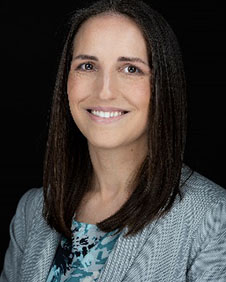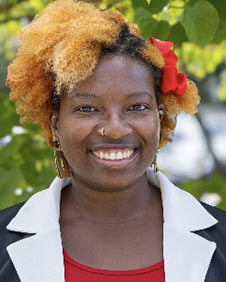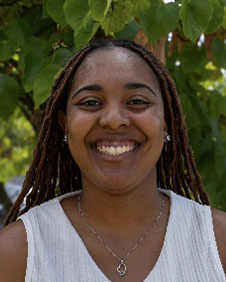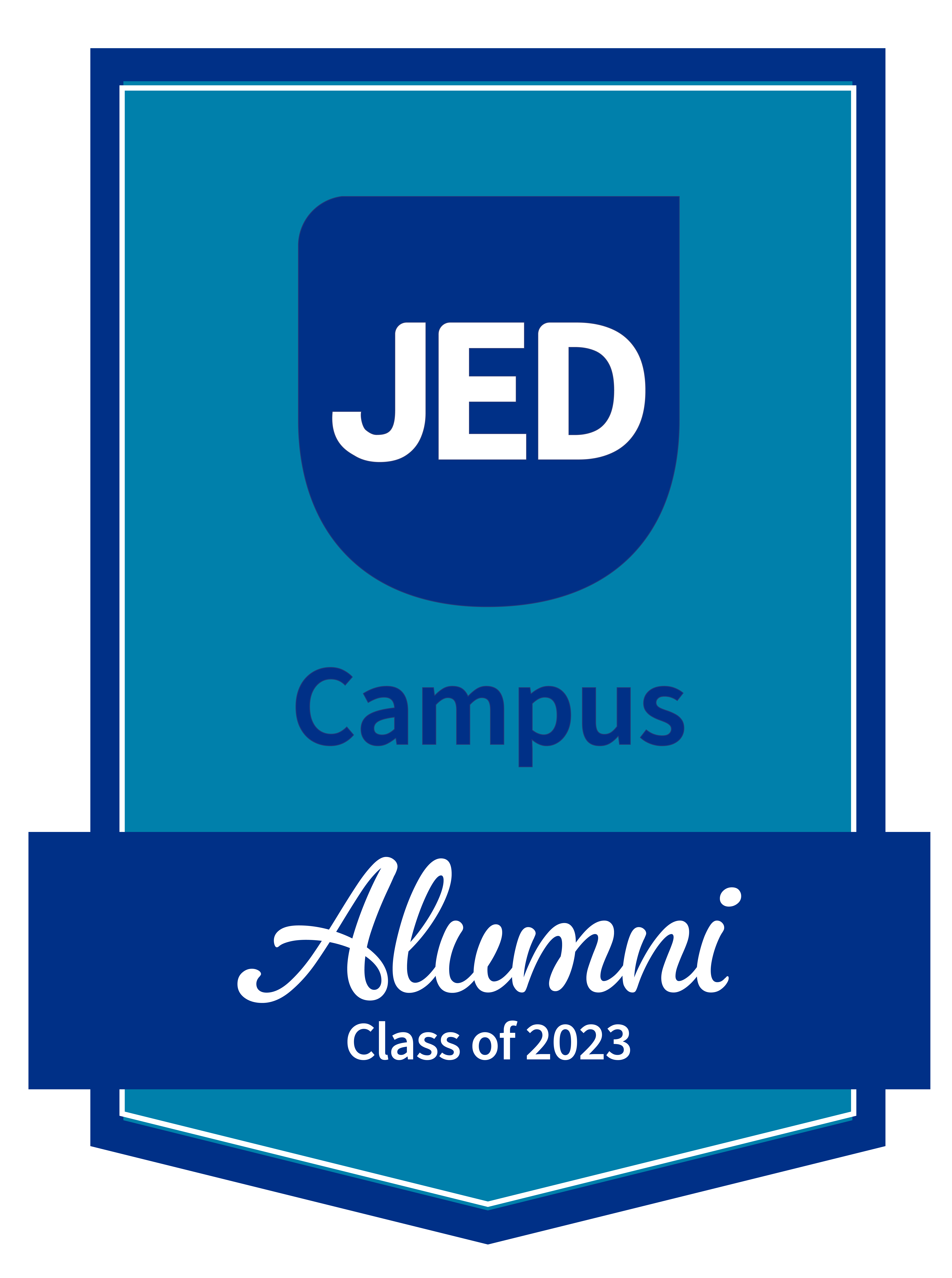Counseling Center
Scheduling an Appointment
- The Counseling Center continues to provide counseling appointments, Monday - Friday / 9 am - 5 pm, through a hybrid model of both in-person and distance counseling (teletherapy) services.
- To schedule an appointment, please reach out to us by phone at 412-397-5900 or via email at counseling@rmu.edu.
- A staff member will assist you with the necessary details and can answer any questions you may have about our services.
- The center is located at Patrick Henry, Lower Level (entrance is to the left of the Nicholson lawn).
What is Counseling?
Mental health counseling is a process in which people learn to resolve problems and/or improve their well-being. Counselors structure sessions to help clients meet their identified emotional, social, occupational, school, and relational goals. Additionally, counselors provide assessment, give clinical impressions, make recommendations, and provide referrals.
Additional Information
- Hospitalization Information
-
Hospitalization for Mental Health Concerns
Whenever a student is brought to the hospital for mental health-related concerns, they will be assessed by emergency room staff. The hospital staff will determine whether or not the student is in danger of harming themselves (or others). Based on this assessment, the student may or may not be hospitalized.
If a student is transported to the hospital for any suicidal gesture, ideation, statements, etc., the student’s emergency contact will be notified by the Office of Residence Life or the Counseling Center. The student will also be encouraged to call parents or guardians from the hospital.
If the student is not hospitalized, it is because the student has been assessed by the hospital staff as not suicidal or not harmful to themselves or others. If the student is hospitalized, it’s because the hospital staff believe that the student is in danger of harming themselves (or others).
Transportation of students cannot be provided by the university or its employees for routine medical appointments or urgent matters with the exception of trained athletic department personnel who may transport student-athletes as deemed necessary by the RMU Department of Athletics. For mental health and other related matters, transportation arrangements will be determined by the RMU Counseling Center. Students who have been transported by ambulance to the hospital will be advised of local resources, if needed, for return transportation to campus when discharged.
The student will meet with RMU Counseling Center staff the day of discharge or the next business day, depending on time of discharge. The purpose for these meetings is to assure, to the best of our ability, that the student has adequate support on campus. Even if the student has an off-campus psychiatrist and/or psychologist or therapist, the student will still meet with Counseling Center staff.
Policy for Returning to Campus After Hospitalization
Students who are seen at the emergency room and/or are hospitalized, and who do not wish to take a medical leave but feel ready to return to campus after a discharge from the hospital, must be evaluated for readiness to return to campus before they are permitted to resume living on campus or coursework.
The process involves providing documentation from the hospital physician summarizing treatment and a medical opinion of the readiness of the student to return. In order to provide this required information, please complete the Provider Assessment and Release Form (see link and instructions below). Additionally, the student may be required to meet with a university official before they resume classes or return to the residence halls. This information will be reviewed by the Dean of Students or another designated university official and a decision will be made regarding whether the student will be permitted to return or will require a medical leave.
If the student and their family disagree about a recommendation for medical leave, they may appeal the decision to the Dean of Students. If the Dean decides that it is inappropriate for the student to return to campus at this time, the student will be placed on a medical leave.
The Provider Assessment and Release Form must be completed and signed by the attending physician prior to a student's return to campus after hospitalization. Please provide your physician with either the electronic link or a hard copy of this form and ask them to complete the required information. Upon completion, the form must be returned to the Counseling Center via mail or fax* from the hospital. This document must be received in the Counseling Center prior to (or at the time of) your appointment.
*The return address/fax info is listed on the first page of the form.
- Suicide Prevention Resources
-
Suicide has become a prevalent mental health concern in the United States with over 30,000 people taking their lives each year. If you or someone you know is struggling with suicidal thoughts, it is important to get help. You can save a life, maybe your own.
How to Identify the Risk Factors for Suicide
- Depression
- Previous suicide attempt
- Excessive alcohol or other drug use
- Rational thinking is lost
- Ending of a significant relationship
- An organized suicide plan
- Isolating from friends and family
- Neglecting appearance and hygiene
- Expressing the belief that life is meaningless
- Talking about suicide or death
- Obtaining a weapon or other means of hurting oneself
How to Help Someone
- Listen intently and let the person express their feelings and emotions.
- Practice reflective listening - reflect back to them what you think they are saying in a non-judgmental manner.
- Validate their feelings and help them to calm and slow down.
- Help them gain understanding of the situation and regain a sense of control.
- Directly ask them if they have considered suicide (do not just wonder, ask).
- In an immediate emergency situation contact the University Police at (412) 397-2424.
- Be willing to go with them to get help.
Need Help?
Robert Morris University offers free and confidential counseling services for our students. To schedule an appointment, call the Counseling Center at 412-397-5900 or stop by. Walk-in crisis appointments are available Monday-Friday, 9 AM-5PM.
If you need immediate help and are located on campus, please contact the University Police at (412) 397-2424. For off-campus help, call 911.
Resources
resolve Crisis Services
1-888-7-You Can (1-888-796-8226) - 24/7 support
Walk-in crisis services, and up to 72-hours of residential services (if referred after a walk-in), in North Braddock, PA
Mobile crisis support teams will travel anywhere in Allegheny County, PA988 Suicide & Crisis Lifeline
Call 988 - 24/7 supportInformation on Suicide Prevention
Half of Us - Feeling Hopeless
"View videos of different people from different backgrounds talking about moments in their lives when they lost hope or thought things would never change. Many of us find ourselves in those dark moments when it’s hard to find hope or figure out what to do next. But all the students and artists in those videos have something in common — they realized that they weren’t alone, found ways to change things and got the support they needed to feel better." - On-campus and Community Resources
-
Important Contacts
- Residence Life Emergency Number (For students in the Residence Halls): 412-397-5242
- RMU University Police (24 hours): 412-397-2424
- Student Health Services / MyHealth RMU: 412-397-6220
- resolve Crisis Services (phone support, mobile crisis team and a walk in crisis center, 24 hours): 1-888-796-8226
- Mercy Behavioral Health Crisis Center (Phone, walk in): 1-877-637-2924
- 988 Suicide & Crisis Lifeline (24 hour hotline): Call 988
- PAAR: Pittsburgh Action Against Rape (24 hour hotline, linkage to services): 1-866-363-7273
- Center for Victims (24 hour hotline, linkage to services): 1-866-644-2882
- Women's Center and Shelter of Pittsburgh (Intimate Partner Violence 24 hour hotline, crisis services, linkage to services): 412-687-8005
Area Pharmacies
- Walgreens - 6906 University Boulevard, Moon Township, PA 15108: 412-269-2501
- Giant Eagle - 5990 University Boulevard, Ste 4, Moon Townshp, PA 15108: 412-269-0254
- Walmart - 7500 University Boulevard, Moon Township, PA 15108: 412-890-0143
Medical Laboratories (Bloodwork)
- Quest Diagnostics - 1600 Coraopolis Heights Road, Ste G, Coraopolis, PA 15108: 412-262-4640
- Heritage Valley Health Center - 935 Thorn Run Road, Moon Township, PA 15108: 412-262-4161
- Heritage Valley Sewickley Hospital - 720 Blackburn Road Sewickley, PA 15143: 412-749-7361
Local Psychiatric Hospitals
- Heritage Valley Kennedy Hospital: 412-777-6161
- UPMC Western Psychiatric Hospital: 412-624-2000
Local Substance Abuse Treatment Centers
- Greenbriar Treatment Center: 4955 Steubenville Pike, Ste. 365, Pittsburgh, PA 15205: 412-788-6292
website: greenbriar.net - Gateway Rehabilitation Center: 100 Moffett Rd., Aliquippa, PA 15001: 412-604-8900
website: gatewayrehab.org - Jade Wellness Center: 101 N. Meadow Dr., Wexford, PA 15090: 412-380-0100
website: myjadewellness.com
- Faculty and Staff Resources
-
The Counseling Center is committed to working with faculty and staff on any student issues that may benefit from our assistance or expertise. Due to their frequent contact with students, both faculty and staff are uniquely positioned to notice changes in student behavior over time and to direct students to appropriate campus resources, as needed. The RMU Counseling Center offers a wide variety of services to meet the unique mental health needs of its students. Faculty or staff who have concerns for a student’s mental health or wellness should do what they can to connect the student with the Counseling Center, in order to help them receive appropriate services.
Counseling Center services include individual counseling, group counseling, psychoeducational outreach, and crisis intervention services (including working with a student in distress, facilitating psychiatric hospitalization of a student requiring a higher level of care, working with a group of students who have experienced a traumatic event such as the sudden death of a classmate, and other emergencies).
The Counseling Center works closely with the Office of Residence Life and the University Police to respond to students experiencing various crisis situations and emergencies.
Please click on the button below to review our Faculty and Staff Resource Guide, which provides helpful information for faculty and staff when dealing with students in distress.
Responding to Students in Distress:
A Resource Guide for Faculty and StaffRMU Counseling Center Contact Information
Office location: Lower level of Patrick Henry Center (entrance is off of the Nicholson Lawn)
Phone: (412) 397-5900 | Email: counseling@rmu.eduGuidelines for Consultations/Referrals
- Please review our Faculty and Staff Resource Guide (see the staff resource guide button above) for general information.
- Feel free to call the Counseling Center to discuss your concerns about a student. One of our staff will help you clarify what may be the most helpful approach for that individual.
- Talk to the student directly and express your concern. Provide them with our contact information (see above) and encourage them to reach out.
- In cases where an individual’s behavior poses an imminent danger to yourself or others, contact the University Police immediately at (412) 397-2424.
- Any RMU employee who becomes aware of a suicide threat or gesture, whether written, verbal, or behavioral, must contact the Counseling Center immediately at (412) 397-5900. After hours, call the RMU Police immediately at (412) 397-2424, as they can reach our on-call staff. If off-campus, call 911 for emergency assistance and then notify the Counseling Center as soon as possible.
Follow-up Procedure
We understand that you may be interested in the progress of students you have referred to the Counseling Center. However, we are bound by the principles of confidentiality as defined by ethical obligations and relevant privacy laws.We can:
- Offer you information about psychological concerns and problems, in general
- Answer your questions concerning steps to take in assisting students in coming to the Counseling Center
We cannot:
- Verify that a student is being seen by Counseling Center staff or has kept an appointment
- Discuss the content of any sessions
- Discuss treatment plans or progress
In some cases, a student may find it in their best interest for information to be shared with a faculty/staff member, family member, or significant other. In this case, the student must provide written authorization with a clear explanation of the purpose and content of any disclosure. The only exception to this policy would be a clinician’s determination of imminent danger to the student or to others.
To Report a Substance Use/Abuse Concern
If you are worried about a student’s substance use, you may schedule a confidential consultation appointment with the RMU Counseling Center to discuss your concerns. Alternatively, you can use the Substance Abuse Concern form to report any concerns you may have about a student using/abusing drugs or alcohol. Note that this form is not a confidential means of communication and may be seen by multiple RMU staff. Do not use this form for an emergency!
If this is an emergency...
- On campus: contact the RMU Police immediately at 412-397-2424 to report your concerns
- Off campus: call 911 for help
- Who We Are
-
Full-time Staff

Tiffany Guthrie, MS, LPC, NCC
Director and Therapist
guthrie@rmu.edu | 412-397-5429Tiffany is the director and a therapist in the RMU Counseling Center. She is a licensed professional counselor in the state of Pennsylvania and a national certified counselor. She is also certified in cognitive behavior therapy from the Cleveland Center for Cognitive Therapy. In addition to her work at the counseling center, Tiffany is a part-time faculty member for RMU's Master of Science in Counseling Psychology program. Prior to joining RMU in 2015, Tiffany was employed as a therapist at TCV Community Services for adults with both substance use and mental health concerns. She completed her undergraduate education at Washington and Jefferson College, and she earned her Master of Science degree in professional counseling at Carlow University. Tiffany has presented at the Higher Education Suicide Prevention Conference and is a continuing education trainer for the University of Pittsburgh School of Social Work. She is an active member of the Association for University and College Counseling Center Directors and a peer reviewer for the Journal of College Student Mental Health.

Meg Spierto, MA, LPC, NCC
Assistant Director and Therapist
spierto@rmu.edu | 412-397-5907Meg is an assistant director and therapist for the RMU Counseling Center. She is a licensed professional counselor in Pennsylvania. Prior to working at RMU, Meg was a counselor and instructor at Slippery Rock University and a crisis clinician at Resolve Crisis Services. She completed her undergraduate degree at Geneva College and her Master's in Student Affairs in Higher Education with College Counseling at Slippery Rock University. Meg is published in The Journal of the Pennsylvania Counseling Association. She has presented at national and regional conferences on her work with college students.

Sarah Walters, MA, MS, LPC, NCC, CCTP
Assistant Director and Therapist
walterss@rmu.edu | 412-397-5904Sarah is an assistant director and therapist for the RMU Counseling Center. In addition to these roles, Sarah also oversees and supervises the clinical counseling interns and other training & outreach for the center. She is a licensed professional counselor in the state of Pennsylvania and a national certified counselor. Sarah has done extensive training in ACT (Acceptance and Commitment Therapy) and is also credentialed as a Certified Clinical Trauma Professional, as well as being a fully trained EMDR therapist. She’s published in the Journal of Feminist Family Therapy and has led workshops on counselor burnout & self-care, managing vicarious trauma in the helping professions, and intersectionality and its impact on mental health. Sarah has a Master of Arts in conflict resolution and peace studies from Duquesne University and a Master of Science in clinical mental health counseling from California University of Pennsylvania, now PennWest California. Sarah loves working with college students and strives to create a warm and supportive environment where students can explore themselves safely and without judgment.

Ryann Burick, MSW, LSW, MS
Crisis Intervention Specialist and Therapist
burick@rmu.edu | 412-397-5911Ryann currently serves as the crisis intervention specialist and therapist in the RMU Counseling Center. She provides one-on-one therapy and crisis services, as well as mental health-related training to individual student groups and campus organizations. Before Ryann joined RMU in 2021, she was employed by the Mercer County Behavioral Health Commission as a community crisis worker, where she provided crisis intervention for suicidal clients within the county. She completed her Bachelor of Science and Master of Social Work degrees at Edinboro University of Pennsylvania, now PennWest Edinboro. She also earned her Master of Science in organizational leadership, with a concentration in non-profits, from RMU in 2023. Ryann is a certified QPR (Question, Persuade, Refer) Instructor and works with groups across campus to train faculty, staff, and students as suicide prevention gatekeepers.

Beth Lucas, MS
Secretary II
lucase@rmu.edu | 412-397-5900Beth serves as the front line staff member for the counseling center, assisting students and other clientele who visit the center. She is also responsible for the administrative functions of the office and provides support for the counseling center’s many projects and outreach efforts on campus. Prior to joining RMU in 2013, Beth was an administrative assistant and project coordinator for Edgeworth, Inc., a Pittsburgh-based consulting firm. She has an extensive background in office organization and project management. Beth earned her Bachelor of Science degree from Seton Hill University and her Master of Science in organizational leadership from Robert Morris University.
2024-2025 Clinical Counseling Interns

Stephanie Marcella Layne
Stephanie is a counseling psychology doctoral trainee at the RMU Counseling Center. She is currently in her second year of study at Carlow University working towards her PsyD as a Counseling Psychologist. Currently, she works as the Accessibility Specialist for Carlow University's Disability Service Office. As a second year PsyD student, Stephanie is researching how nutrition affects mental health, and hopes to become certified in nutrition and CBT (Cognitive Behavior Therapy). Prior to studying psychology, Stephanie obtained her BA in cinema studies from the College of Staten Island and her MS in entertainment business. She also earned her MS in psychology from Regent University. Her goal is to help students better understand themselves from a holistic wellness perspective.

Rachel McGough
Rachel is a counseling psychology trainee at the RMU Counseling Center. She is in her second year of her MS degree in clinical mental health counseling at RMU. In addition to her role as an intern therapist for the counseling center, Rachel also provides after hours crisis support for the counseling center and residence life. Rachel attended Saint Vincent College in Latrobe, PA where she graduated in 2023 with a BS in psychology (concentration in mental health, along with minors in both disability studies and children's studies). She also received an Addictions Specialist Certificate during her time at Saint Vincent College. Rachel completed two practicum experiences at UPMC Adolescent IOP OCD and UPMC Matilda Theiss Nursery and Preschool. She also completed an internship with Adelphoi in Westmoreland County, working with female adolescents with trauma histories. Rachel aims to create a warm and comfortable environment for her clients to be able to achieve their goals.

Taylor Stewart
Taylor is a counseling psychology doctoral trainee at the RMU Counseling Center. She completed her undergraduate education at Lincoln University of PA and earned her MA degree in exploration psychology at Carlow University. Taylor prioritizes providing mental health awareness, education, and outreach to the student community. She is looking forward to empowering students while creating a safe space to help them improve their quality of life.
Find Us on Social Media
- Instagram: @RMU_THRIVE
- Facebook: RMU Counseling Center
Vision Statement
The Robert Morris University Counseling Center is committed to addressing the mental health needs of students via clinical services and psychoeducational programming, in order to increase resilience and help students to develop strategies for success. The Counseling Center will be a strategic partner with Robert Morris University departments, offices, and student organizations to provide a holistic and complete experience that honors all students. Through the Thrive Program, the Counseling Center strives to develop student leaders committed to enhancing mental health wellness on campus. The Counseling Center is dedicated to empowering students to realize their fullest potential while in college and beyond.
Non-discrimination Statement
The Robert Morris University Counseling Center is committed to embracing diversity in all its forms as a core value of our center. We strive to provide culturally competent clinical services and community interventions and are dedicated to promoting an environment of respect and appreciation for the race, ethnicity, national origin, gender identity, age, religious affiliation, sexual orientation, physical/mental ability, and socioeconomic status of all students. We aim to provide a safe, welcoming, and affirming environment for all persons who utilize our services.

